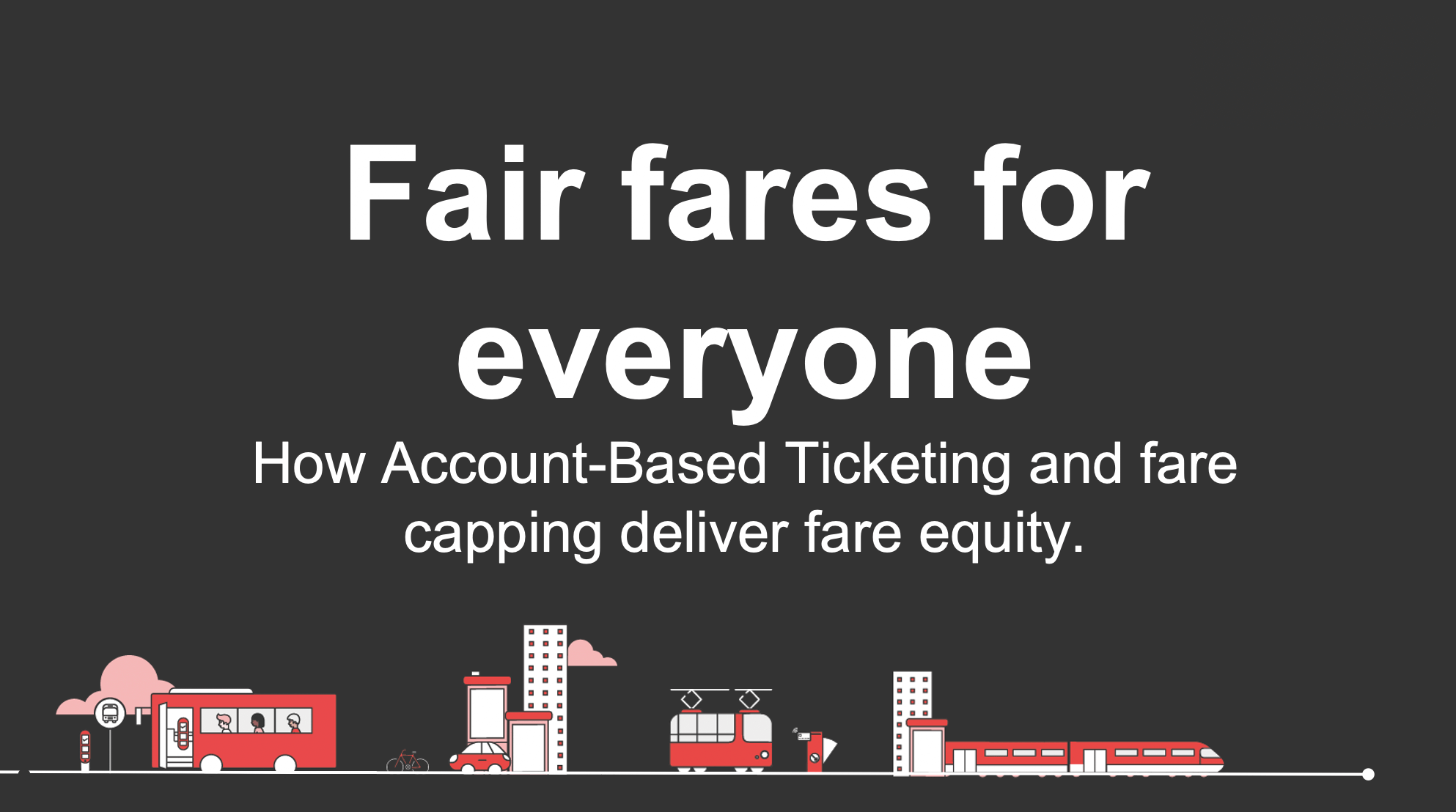For the last fifty years, transit agencies and transport authorities have been running ‘Card Centric’ bespoke ticketing systems in which each agency builds their own solution with the tickets purchased by the passenger held on the card.
Agencies then set fares that try to support the diverse needs of their riders. People that might need to travel once, or people who might need to travel every day. That’s why there are a variety of fares for single or return trips, day passes, weekly passes and monthly passes, to name just a few. These longer period passes are great, as they provide discounts on travel for regular users.
However there are three problems with running a ticketing system this way:
- It provides discounted tickets only for those people who can afford to purchase them upfront
- It requires people to purchase tickets in advance of travel, creating a barrier of entry to the system
- It requires people to select their fare in advance of travel, which again, is another barrier.
Selecting fares has recently gotten even more difficult and passengers now need greater flexibility as travel habits have changed dramatically.
However, there is a way of removing these problems and delivering equity while reducing costs...
Delivering fair fares is pretty simple really: transit agencies just need to ensure that riders who can only afford to purchase low value fares have access to exactly the same experiences and benefits of those who choose to pay for more cost-effective period passes or ticket bundles. We call this delivering fare equity.
Although the sentiment is pretty simple: fair fares for everyone; the payment technology that allows transit agencies and operators to deliver on this promise is pretty smart.
Offering all riders a ‘fair fares’ payment experience is made possible by adopting an Account-Based Ticketing approach to fare payments combined with the introduction of Fare Capping.
Account-Based Ticketing removes the need for passengers to purchase tickets in advance of travel, while fare capping limits riders’ spend based on rules set by the agency and ensures fares are charged based on usage of the system.
So the student who pays every day for a single ticket for part-time study at college pays exactly the same fare as a commuter who pays up front for a monthly period pass.
When the student makes enough journeys to earn the pass, their fares are capped and they travel for free for the remaining duration of that pass’s validity.
Account-Based Ticketing in practice
In Ohio, USA, Greater Dayton Regional Transit Authority introduced Account-Based Ticketing via its Tapp Pay touch-free payment solution in February 2021.
This allowed passengers to tap and ride around the city while Masabi’s Justride back office systems calculated the best value fares.
No matter how many essential trips a rider makes throughout a given day or rolling 31-day period, they will never pay more than the price of a daily or monthly pass, rewarding passengers the more they travel. In Dayton, customers are capped at $3 daily and $30 within a rolling 31-day period by using Tapp Pay.
Account-Based Ticketing: a rider example
Dana works three days a week but her employer sometimes needs her to work overtime and cover colleagues’ shifts at short notice and she is also studying part-time at the local college.
In a standard week, Dana would buy separate tickets for her journey except Thursdays, when she buys a daily period pass to cover journeys to and from work and college.
When Dana’s boss calls her to cover extra shifts at short notice, she needs to pay for extra journeys, but she doesn’t know how many extra shifts she may get at the start of the week.
In a typical week, Dana makes two return trips to work plus a daily pass for work and college on a Thursday. Each journey costs $2.50 and the daily period pass costs $7, so she typically spends $17 a week on travel. If she works two extra shifts, the cost of buying individual tickets increases to $27.
A weekly travel pass would cost $22, so with the extra shifts, it would be cheaper to buy the pass, but Dana doesn’t know whether she will get those shifts in advance.
Under an Account-Based Ticketing system with fare capping, Dana doesn’t need to worry about whether she should buy a weekly travel pass – or whether she will get those extra shifts. Nor does she have to pay for the daily travel pass upfront on Thursday. She simply taps and pays as she goes without needing to purchase tickets in advance, safe in the knowledge she will not be overcharged for her trip.
Delivering Account-Based Ticketing quickly and cost-effectively
Thanks to a Fare Payments-as-a-Service delivery model, agencies can now benefit from the latest fare payment innovations quickly and cost-effectively by using a shared (multi-agency) platform, like Masabi’s Justride, which is constantly updating and adding new features.
This not only improves the journey experience for passengers, but helps agencies keep up with the pace of technology change. It also reduces the total cost of fare collection as costs are shared between all users.
Justride is the largest and leading fare payments platform in the world and provides comprehensive Account-Based Ticketing (ABT) functionality. The platform supports all rider groups and has over 140 agencies of all sizes signed up.
If you would like to learn more about Account-Based Ticketing then please request a demo.


